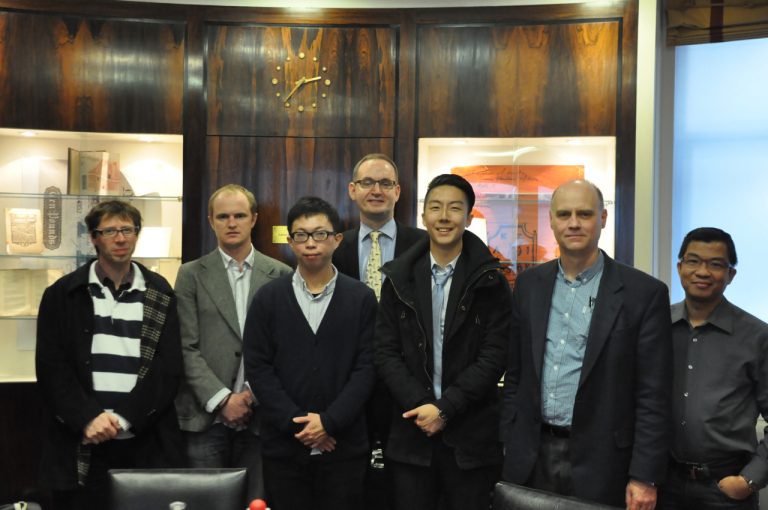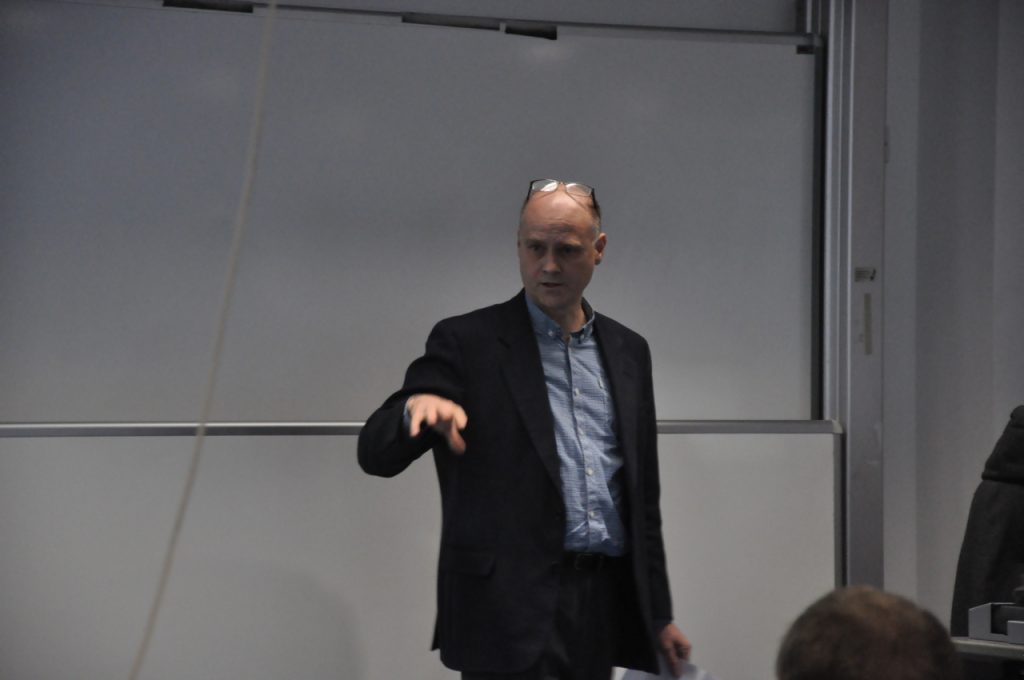Dennis Wei (魏揚) and Wu Cheng (吳崢) talked about how the rise of the Sunflower Movement is closely connected to the current social, economic and political situation as well as Taiwan’s unique historical background. Many other countries are facing similar issuea but Taiwan has in addition the China factor. This China factor makes it even more difficult to implement policies that can improve Taiwan’s situation.
By Michael Danielsen, chairman of Taiwan Corner
The trip by Dennis Wei (魏揚) and Wu Cheng (吳崢) to London and Brussels, which had Taiwan Corner as the main organizer, included a seminar at London School of Economics on November 3 2014. The seminar was chaired by Chris Hughes and sponsored by Taiwan Corner. This article provides an idea about some of the many topics covered at the seminar and it is thus not intended as a full description of the two hours seminar.
At the seminar chairman of Taiwan Corner Michael Danielsen gave a short presentation, reflecting on Taiwan Corner’s cooperation with Taiwanese groups in Europe, and suggested ways that the various groups can work together and reach out to the European public.

Michael Danielsen’s talks about Taiwanese groups in Europe. 
Dennis Wei’s presentation at London School of Economics
Dennis Wei (魏揚) and Wu Cheng (吳崢) gave two excellent speeches. They talked in details about how the rise of the Sunflower Movement is closely connected to the current social, economic and political situation as well as Taiwan’s unique historical background. Many other countries are facing similar social, economic and political challenges associated with globalization but Taiwan has in addition the China factor. This China factor makes it even more difficult to implement policies that can improve Taiwan’s situation.
Many interesting questions were raised during the Q&A. One attendee said that the social movements appear fragmented in Taiwan, so how can the movement be said to be a movement? There are several movements in Taiwan addressing different questions. Environmental groups can for instance address a single issue which subsequently is put into a more general environmental and national discussion. In this way, they are a movement.
There exist common issue such as the relationship with China. The anti-media monopoly movement and the movement against the service trade agreement have the China factor as a common issue. The China factor and justice are topics that unites people.
Dennis Wei (魏揚) and Wu Cheng (吳崢) stated that they are Taiwanese no matter if China gets democratic or not. Taiwan is where we grow up and Taiwan is where we live and have our future they responded to question on this topic. We are Taiwanese said both Dennis Wei (魏揚) and Wu Cheng (吳崢). Wu Cheng’s (吳崢) feeling of being Taiwanese got even stronger after the KMT government removed ROC flags during visits from China.
Other questions were related to the social movements’ relation to the opposition party, the DPP, and the government party, the KMT. DPP have been close to NGO’s before they came into government in year 2000. During the DPP government, DPP departed from many social groups and became more business friendly. Many organizations were weaken by DPPs policies. Today, KMT does not even want to talk to the movements. This is worse than DPP’s actions during their government.
The dialog at the seminar was open, productive and included several other issues including the question of transitional justice and democratic development.

Wu Cheng’s talk at London School of Economics 
Chris Hughes chaired the seminar. 
Group picture from seminar.









